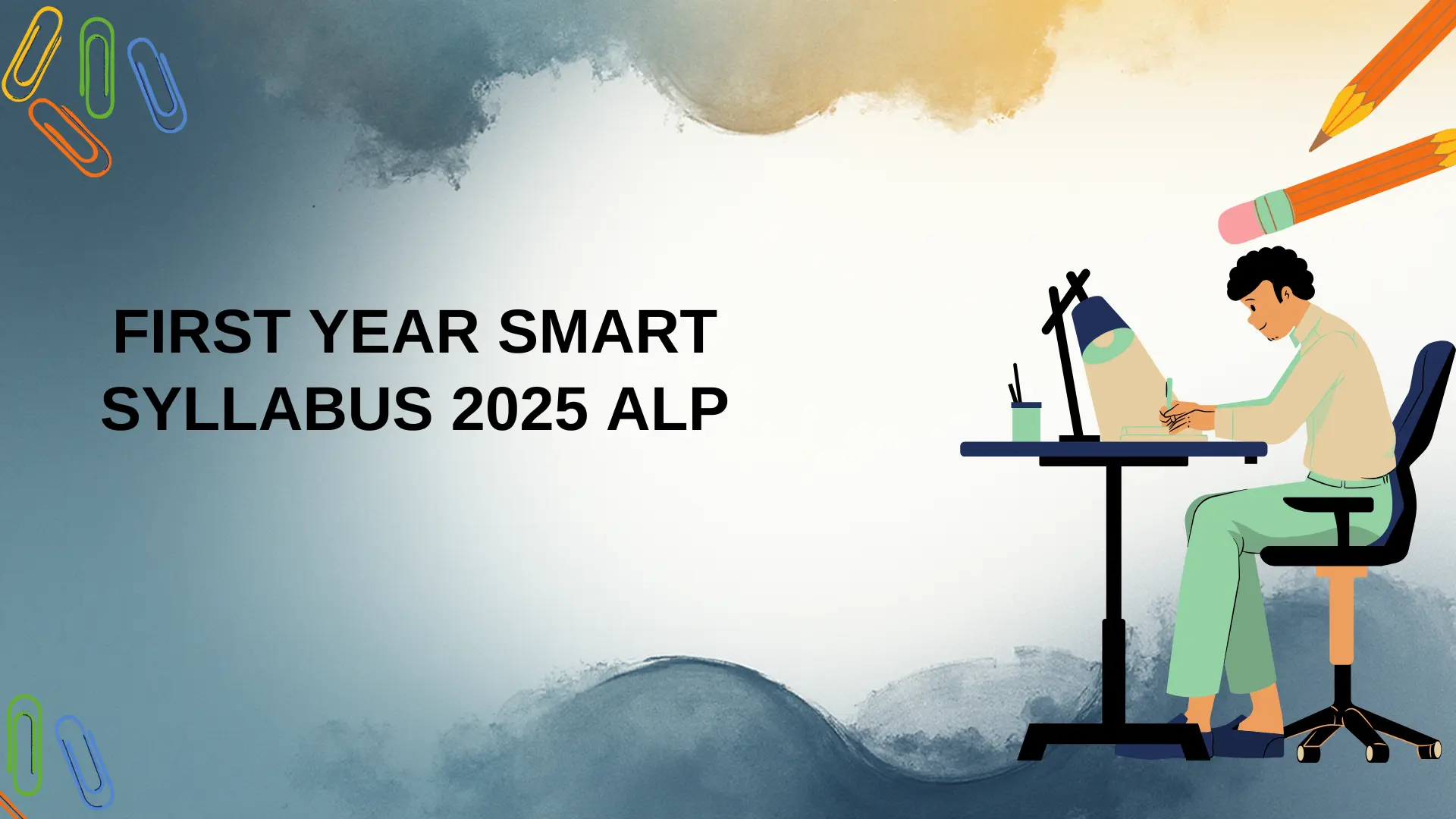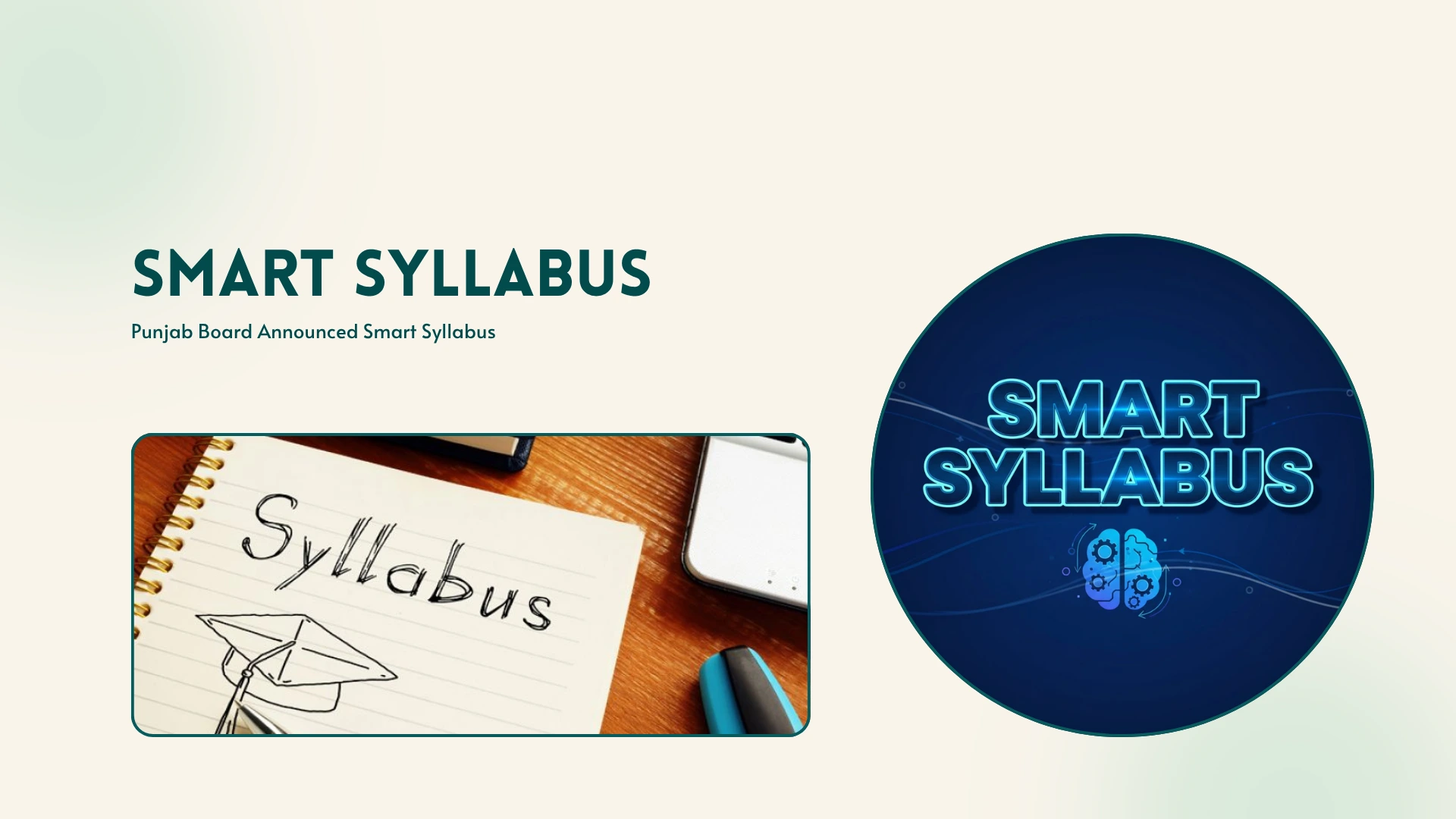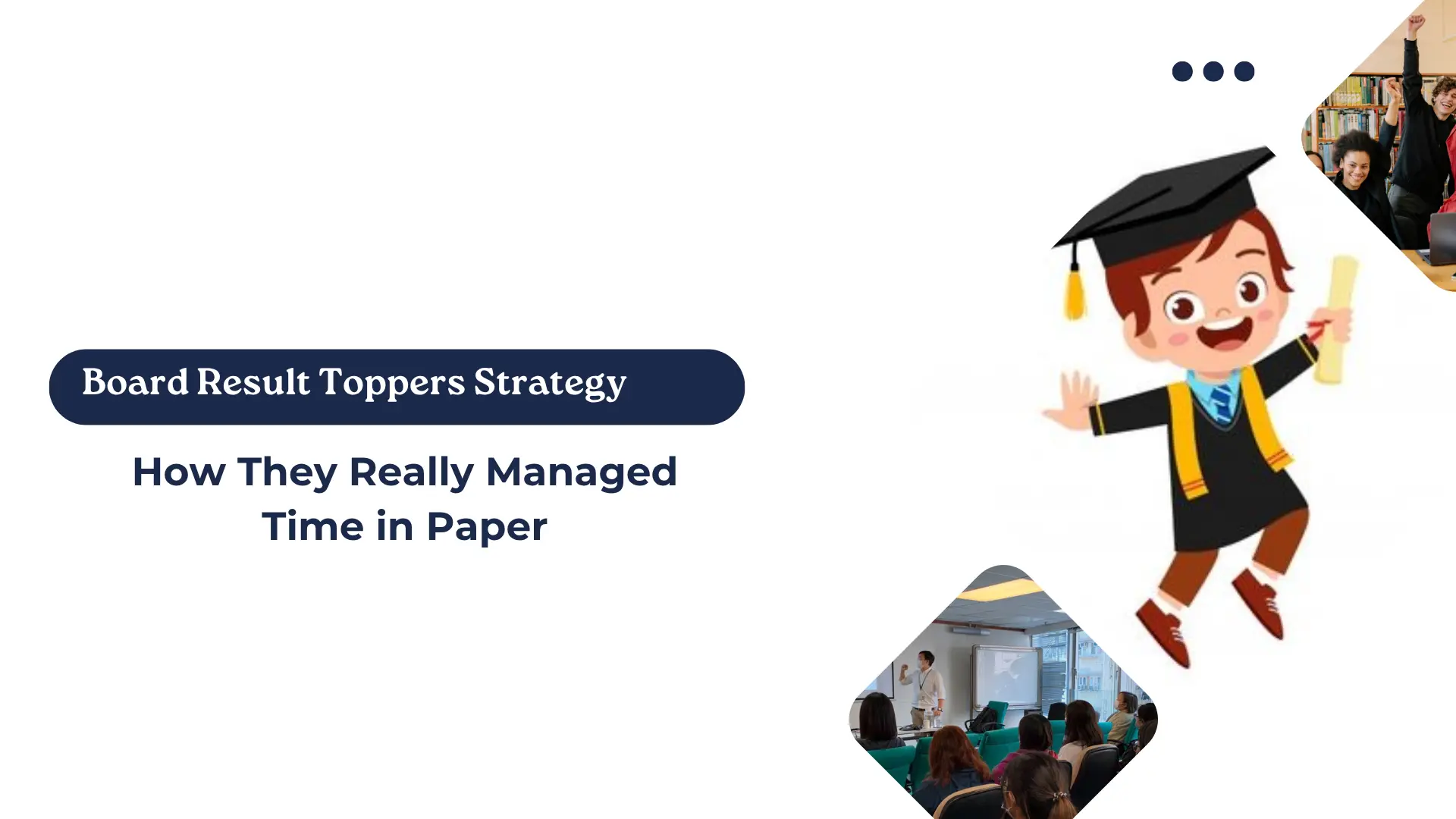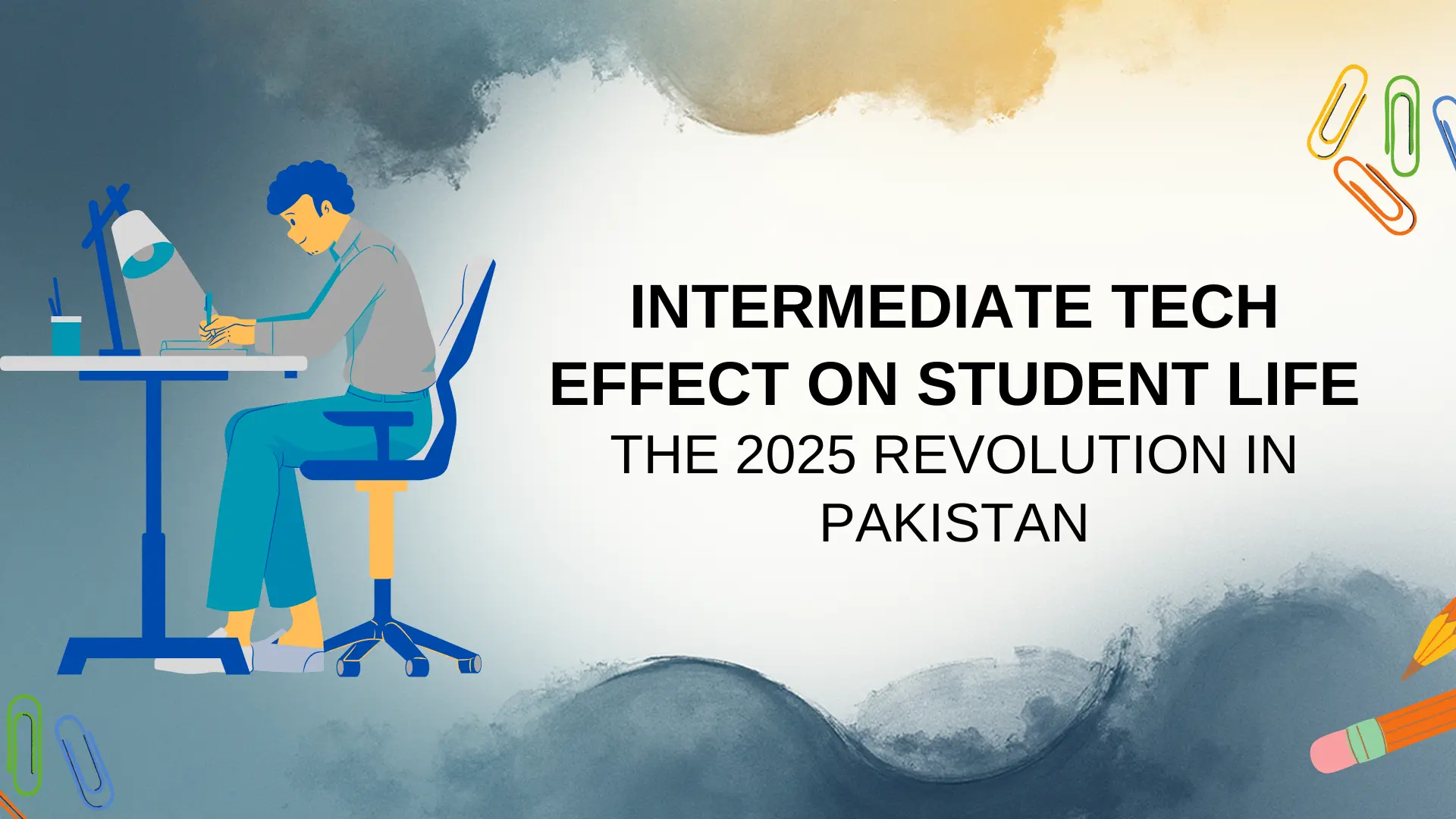When I heard about the new First Year Smart Syllabus for 2025, my first thought was about my younger brother who's currently in 10th class. He's been anxious about FSc for months, hearing stories from seniors about how brutal first year is. Now, with this smart syllabus, things might actually be different for his batch.
Why Punjab Board Made This Change
The Punjab Education Ministry didn't wake up one day and randomly decide to change the syllabus. This decision came after years of watching students struggle, stress out, and in many cases, completely break down under academic pressure.
There were multiple factors behind this massive shift. First, the devastating floods that hit Pakistan disrupted education across the province. Students lost precious study time, schools were damaged, and the academic calendar went completely off track. Second, new textbooks were being introduced, and the Ministry realized this was the perfect opportunity to restructure how content is taught and assessed.
But the biggest reason? The Education Ministry finally acknowledged what students and teachers have been saying for years: the intermediate syllabus, especially first year, is unnecessarily difficult and stress-inducing. According to the Ministry's own statement, they want to reduce student stress because FSc and ICS students are constantly under pressure from tough subjects combined with the looming threat of MDCAT and ECAT entrance exams.
The Harsh Reality of First Year: 20-30% Pass Rate
Let me share a statistic that most people find shocking: in Punjab, the typical first year pass rate hovers around 20-30%. Think about that for a moment. Out of every 100 students who enter first year, only about 20 to 30 make it through without failing at least one subject.
This isn't because Pakistani students are incapable. These are the same students who cleared their matric exams, many with good grades. So what changes when they enter intermediate? Everything.
The English Medium Trap
FSc Part I is considered the toughest year in Pakistan's education system, and a major reason is the forced English medium instruction. There's absolutely no choice about the medium of instruction. Everything is in English. Biology in English. Mathematics in English. Physics and Chemistry in English.
Now, here's the problem: Urdu medium options simply don't exist for these science subjects. A student who studied in Urdu medium throughout matric suddenly faces a wall of complex scientific terminology in a language they're still learning. Even students from English medium schools struggle because scientific English is different from conversational English.
Imagine trying to understand photosynthesis, cellular respiration, or organic chemistry mechanisms while simultaneously trying to decode the English vocabulary. You're essentially learning two things at once: the subject matter and the language it's presented in. This double burden crushes many students before they even get a fair chance to demonstrate their actual understanding of the subjects.
What FSc and ICS Actually Prepare You For
Here's something interesting that most students don't realize until they're already enrolled: FSc and ICS are not final degrees. They're preparation phases. The names themselves tell you this.
When you're studying FSc, you're not in "Engineering" class, you're in "Pre-Engineering." You're not in "Medical" class, you're in "Pre-Medical." The entire intermediate education system is designed to train students for university-level education. It's basically a bridge between secondary school and higher education.
This training approach explains why first year is so intense. Universities need students who can handle complex scientific concepts, advanced mathematics, and detailed analytical thinking. So intermediate education throws everything at students to prepare them for that environment.
The problem? This preparation is so harsh that many capable students never make it to university. They get filtered out not because they lack ability, but because the training process itself is too brutal.
The Smart Syllabus Promise: Better Marks, But What About Concepts?
Now we come to the big question about the smart syllabus. Students studying under this new system will definitely score better marks. The reduced content and streamlined assessment make higher percentages more achievable. This is good news for students stressed about grades.
But here's my concern, and it's something worth thinking about: when these students reach university, will they have all the conceptual foundation they need? If you've learned a "smart" version of first year, and then university professors assume you know the "complete" version, gaps in understanding will emerge.
The 2027 MDCAT/ECAT Question
Students studying the smart syllabus in 2025 will take their MDCAT or ECAT exams in 2027. The good news is that these entrance exams will also be based on the smart syllabus. The testing authorities have confirmed this. You'll be tested on what you actually studied, not on the older, fuller syllabus.
This alignment is crucial. It would be completely unfair to teach students a reduced syllabus and then test them on material they never covered. So from an exam perspective, students are protected.
However, the challenge comes later, after admission to medical or engineering universities. When actual medical school or engineering coursework begins, professors won't be teaching based on "smart" syllabi. They'll teach full medical or engineering curricula. Students might find themselves struggling to keep up because some foundational concepts from first year were in the portions that got "smartened" out.
The Exciting Addition: New Skill-Based Subjects
Here's where things get really interesting and genuinely positive. The Pakistan Education Ministry, particularly in Punjab, hasn't just reduced content. They've added numerous new subjects that allow students to gain practical skills during their intermediate years.
This is revolutionary thinking. Instead of just making existing subjects easier, they're expanding options so students can learn things that are actually useful in real life. We're finally moving away from purely theoretical education toward a model that values skills and practical knowledge.
The Inter Tech Revolution
In 2025, Intermediate Tech was introduced with completely new subjects. These aren't your traditional academic subjects. These are practical, skill-based courses that prepare students for actual careers, not just more exams.
Students can now learn technical skills alongside their academic studies. They can study computer programming, digital marketing, graphic design, web development, and various vocational trades. This means by the time they finish intermediate, they're not just academically qualified, they're practically skilled.
Think about what this means. A student doing FSc Pre-Engineering could also learn CAD software and basic electrical work. A Pre-Medical student could take courses in healthcare management or medical technology. ICS students could specialize in specific programming languages or cybersecurity basics.
Why Students Choose Wrong Subjects (And How This Changes)
I've talked to hundreds of intermediate students over the years, and a common theme emerges: many of them are studying subjects they're not suited for. Not because they're unintelligent, but because the old system offered limited options that didn't match their actual abilities or interests.
A student might be amazing with technology but average at pure sciences. In the old system, if they wanted a "respectable" career, they had to force themselves through FSc or ICS. There were no alternatives that combined tech skills with academic credentials.
Another student might have excellent hands-on mechanical skills but struggle with theoretical Physics. Again, the system forced them into categories that didn't fit. Either suffer through Pre-Engineering or give up on technical careers entirely.
The new subjects fix this problem. Now students can find educational paths that actually match their natural abilities. When you're studying something that aligns with how your brain works, everything becomes easier. Concepts make more sense. Studying feels less like torture and more like growth.
Looking Ahead: The 2026 and 2027 Predictions
Right now, these new subjects and smart syllabus are unfamiliar territory. Students aren't sure what to expect. Teachers are adapting their teaching methods. Parents are cautiously optimistic but also worried about unknowns.
The 2026 Result Expectations
I'm genuinely hopeful that the 2026 first year results will be significantly better than previous years. Instead of that depressing 20-30% pass rate, we might see 50-60% or even higher. The reduced syllabus and clearer pairing schemes should translate to better performance.
More importantly, students might actually understand what they're learning instead of just memorizing it in panic. When you have time to properly grasp concepts instead of frantically trying to cover impossible amounts of content, real learning happens.
The 2027 Game Changer
By 2027, students who chose Inter Tech subjects along with their academic studies will have spent two years developing actual marketable skills. These students won't just have good grades, they'll have practical abilities that employers value.
A student who chose subjects matching their natural abilities and interests will score much higher than someone forcing themselves through mismatched subjects. They'll understand concepts deeply because they're learning in their area of strength. They'll study more effectively because the material resonates with how they think.
Every Student is Capable: They Just Need the Right Direction
This is perhaps the most important message from all these changes: every student is capable of success. The problem was never student ability. The problem was a rigid system that forced everyone into the same narrow paths regardless of their individual strengths.
A student who fails FSc Pre-Medical isn't necessarily a bad student. They might be brilliant at technical work that the old system didn't recognize or value. A student struggling with ICS might be naturally gifted at practical skills that weren't part of the curriculum.
The smart syllabus and new skill-based subjects finally acknowledge this reality. They provide different paths for different types of intelligence and ability. When students can choose educational tracks that match who they actually are, success becomes much more achievable.
Most students don't know enough about themselves or the options available to them. They follow what their friends choose, what their parents suggest, or what seems "prestigious" without considering whether it actually suits them. The expanded options now available mean students need guidance more than ever to make smart choices.
Getting the Right Guidance for First Year Choices
With so many new options and changes, students need reliable information to make good decisions. This is where proper educational guidance becomes crucial.
Creative Taleem provides comprehensive information about the smart syllabus, new subject options, pairing schemes, and paper patterns. The platform helps students understand not just what choices exist, but which choices make sense for their specific situation.
Understanding the complete smart syllabus structure is essential before making subject choices. Students need to see exactly what they'll be studying, how it will be assessed, and what opportunities each path creates.
Final Thoughts: A Positive Step Forward
Despite my concerns about potential conceptual gaps, I genuinely believe the First Year Smart Syllabus 2025 is a positive development for Pakistani education. The reduced stress alone will save countless students from breakdowns and dropouts.
The addition of skill-based subjects is even more exciting. For the first time, intermediate education is acknowledging that academic knowledge alone isn't enough. Students need practical skills, and the system is finally providing opportunities to develop them.
Will there be challenges? Absolutely. Any major educational reform has growing pains. But the alternative, continuing with a system that failed 70-80% of students every year, was clearly unsustainable.
For students entering first year in 2025 and beyond: you're part of an educational experiment that could transform Pakistani education. Take advantage of these new opportunities. Choose subjects that match your abilities. Develop skills alongside your academic studies. And most importantly, understand that you're capable of success when given the right environment and direction.
The smart syllabus has opened doors that were previously locked. Walk through them confidently, knowing that the system is finally working with you instead of against you.



